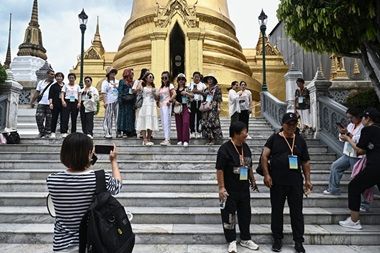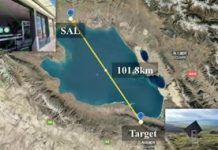Thailand is boosting security in its tourism centers with a smart city system with AI-powered video analytics connected to international databases for facial recognition and wanted persons. The move comes as the country attempts to reassure tourists after the kidnapping of Chinese actor Wang Xing during a trip to the country’s capital of Bangkok.
The Royal Thai Tourist Police announced last week that it has signed a five-year partnership agreement with UK-headquartered Gorilla Technology Group to introduce the technology. The smart city system will also track license plates to bolster cross-border security and monitor crowd density to optimize police deployments. The company says that AI algorithms reach 98 percent accuracy in threat detection.
The solution will build on previous pilot programs and will be rolled out in key tourist destinations over the next five years, according to its press release.
“Our IVAR systems are being enhanced to process vast number [sic] of live video feeds daily, integrating real-time analytics with global databases to ensure proactive threat identification and response,” says Viraphan Paiboolsilp, Gorilla’s technology specialist.
IVAR, or Intelligent Video Analytics Recorder, analyzes CCTV video data to effectively identify people, vehicles, and objects and detect suspicious events.
Wang Xing was freed from a scam center in Myanmar on January 7th, just days after he was reported missing. But the incident has put the spotlight on a growing number of people being trafficked and forced to carry out online scams in the countries surrounding the Mekong River.
Chinese travel reservations for Thailand have been falling, prompting Prime Minister Paetongtarn Shinawatra to publish an AI-generated video this week in Chinese, ensuring potential tourists that the country is improving safety and cracking down on transnational crime. In the video Shinawatra notes that she doesn’t actually speak Mandarin and that her words were generated by AI.
On Monday, Gorilla announced that the smart city surveillance project is advancing to the design and development phase. Over the next year, the firm plans to scale operations in Thailand, hiring over 100 new team members. The project is supported by the British government.
Mike Wang, Gorilla’s sales director for Thailand and Rest of Asia says that the pipeline of opportunities exceeds US$1 Billion in Thailand alone. “By integrating global data-sharing capabilities with our AI systems, we are ensuring that Thailand’s tourism safety framework sets a benchmark not just regionally but globally,” says Wang








